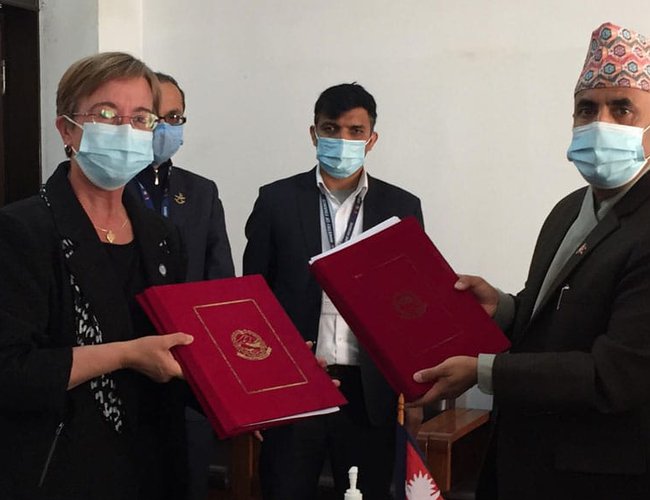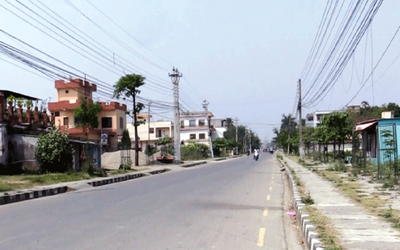
As COVID-19 is drastically affecting small and medium scale entrepreneurs throughout the country, the approval of $80 Million Rural Enterprise and Economic Development Project by the World Bank can make a difference in their business.
As the loan is to boost Nepal’s agricultural sector and support post-pandemic recovery, people living in the rural areas will benefit a lot. The loan will also bolster the agricultural sector by strengthening the rural market linkages and promoting entrepreneurship while creating jobs to support post-COVID-19 recovery.
The Rural Enterprise and Economic Development (REED) Project will promote market linkages to support the growth of rural enterprises, especially those that are women-led. A key focus would be productive partnerships that help add value, create jobs and foster sustainable linkages between small-holder producers and institutional buyers. The project will facilitate improvements in quality and meeting requirements of new destination markets to boost exports.
“The project is an opportunity for the government and the private sector to work together in building the ‘Nepal’ brand in the agricultural sector and leverage the country’s global recognition,” stated Faris Hadad-Zervos, World Bank Country Director for Maldives, Nepal and Sri Lanka. “In doing so, the project can stimulate many niche sectors such as coffee, tea, fruit and medicinal products, among others, to help them grow and to support post-COVID-19 recovery.”
The project focuses on five economic corridors covering Provinces 1, 2, Bagmati, Gandaki, Lumbini and Sudurpashchim that offer opportunities for successful linkages of the rural entrepreneurs to be supported by the project. REED will work with provincial and local governments, intermediary organizations and small and medium enterprises to build capacity in the agriculture sector and strengthen the entrepreneurship ecosystem.
The project will also help improve production through investments in municipal agriculture centers and value chain infrastructures to ensure the availability of inputs for farming as recovery actions from COVID-19. The project will use labor-intensive Cash for Work mechanism, to the extent possible, in short-term public works.
“In the context of Nepal’s agriculture sector transformation and COVID-19, improving agribusiness competitiveness and creating rural jobs are critical to accelerate recovery of the sector and the economy from the pandemic’s impacts,” stated Loraine Ronchi, World Bank Practice Manager for the Agriculture Global Practice.
The project supports the Government of Nepal’s Agriculture Development Strategy 2015–2035 that aims to create a sustainable, competitive, inclusive and resilient agricultural sector that drives economic growth with the private sector’s participation.
The World Bank is supporting Nepal’s development through a portfolio of 24 projects with net commitments of over US$3 billion. The World Bank-supported projects aim at strengthening public institutions for economic management, service delivery and public investment; generating more and better jobs through private sector-driven growth; and building inclusion for the poor, vulnerable and marginalized groups, with increased resilience against climate change, natural disasters and other exogenous shocks.
- TANAHU HYDROPOWER PROEJCT: A Significant Achievement
- Apr 15, 2024
- AMBASSADOR HANAN GODAR: Sharing Pain With A Nepali Family
- Mar 30, 2024
- VISIT OF KfW AND EIB TO NEPAL : Mission Matters
- Mar 25, 2024
- NEPAL BRITAIN SOCIETY: Pratima Pande's Leadership
- Mar 24, 2024
- NEPAL ARMY DAY: Time To Recall Glory
- Mar 15, 2024
















